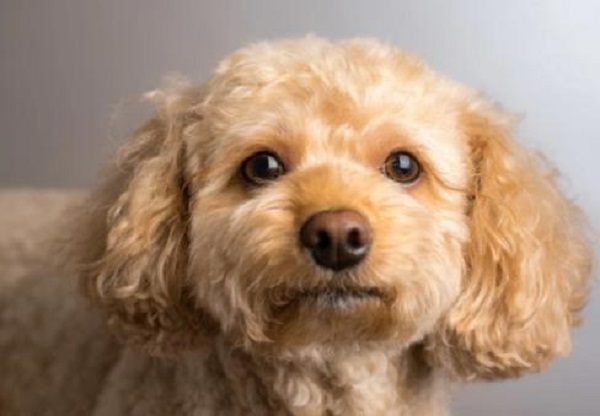Explore the fascinating world of Cavapoos by reading our article, “Cavapoo: Unveiling Information and Traits.” This adorable little dog breed has a hypoallergenic coat, a friendly attitude, and a lively personality. It is a cross between a Cavalier King Charles Spaniel and a miniature poodle. Learn important details about their temperament and care requirements, as well as helpful hints for locating trustworthy breeders or adopting from rescues. Find out why families looking for a lovable, low-allergen canine companion choose Cavapoos.

A brief overview of Cavapoo dogs
- Origin: Australia, 1990s
- Size: 10-20 pounds (4.5-9 kg)
- Lifespan: 12-15 years, often outliving their parents due to Hybrid Vigor
- Breed Group: Hybrid (Designer Dog)
- Coat: Cavapoos showcase various coat types, from wavy to curly, often with low-shedding or hypoallergenic qualities that vary by generation.
- Temperament: Affectionate, friendly, and sociable. Known for compatibility with children, other pets, and strangers.
- Exercise Needs: Moderate; regular playtime, walks, and mental stimulation contribute to their well-being.
- Training: Intelligent and eager to please, Cavapoos respond well to positive reinforcement methods.
- Grooming: Grooming requirements vary based on coat type; regular brushing and occasional professional grooming maintain coat health.
- Health: Inherit traits from both parent breeds, emphasizing the importance of responsible breeding, regular veterinary care, and a balanced diet for overall well-being.
- Noteworthy: Actor and comedian Pete Davidson sparked a public feud with PETA after acquiring a Cavapoo from a pet store.
The Cavapoo’s History
Poodle hybrids, most famously the Cavapoo, have been quite popular in the US in the last several decades. Known affectionately as “doodles,” these hybrids skillfully blend the charming characteristics of individual breeds. As for Cavapoo, they have the minimal shedding and hypoallergenic qualities of poodles together with the friendly disposition of a Cavalier King Charles Spaniel.
With a fascinating past entwined with European aristocracy, the Cavalier King Charles Spaniel is particularly beloved by dog lovers. Admired by King Charles I and II, Cavaliers are known for their loving, outgoing, and amiable nature, and they thrive when they are among people or other animals. In the meanwhile, the poodle family—which includes the standard poodle, who is a great hunter—is respected for its intellect and agility. The toy poodle has a history in the circus.
Characteristics of the Cavapoo

Appearance
A Cavapoo’s cuteness is enhanced by its small muzzle and black button nose, which go well with its eyes, which seem like molten chocolate. Originating from the Cavalier King Charles Spaniel and poodle breeds, this charming breed has long, smooth ears that envelop its face, sometimes embellished with a soft mustache.
With its fluffy, touchable curls that are smooth and flowing, the coat is a sensory joy. Although there are many other color options, multicolored patterns are less frequent, and solid colors like black, gray, red, brown, tan, beige, and white are often used. The Cavapoo’s coat color may vary as it ages, with changes occurring around the nose, tips of the ears, paws, and chest.
A poodle’s height ranges from 9 to 14 inches, and its usual weight is between 8 and 25 pounds, depending on its parent. The Cavapoo is an adorable and affectionate companion that can easily transition from becoming a lapdog despite its size.
Temperament
Cavapoos’ popularity has soared because of their endearing and successful personalities. They are popular family dogs who enthrall with their gregarious, lively, and loving disposition. Although they are highly trainable due to their intelligence, it is important to remember that Cavapoos do best in situations where they are given plenty of attention. Because of their intense need for company, early training is crucial to avoiding separation anxiety. Although they have an amiable nature, Cavapoos do not do well in guarding situations; instead, they do best in households that are loving and caring.
Cavapoo Size
Since the Cavapoo is a relatively new breed, there are certain lenient size criteria. Because they are a lovely cross between a Poodle and a Cavalier King Charles Spaniel, Cavapoos are often tiny to medium in size, depending on the size of their Poodle parent.

Cavapoos are typically nine to twenty-five pounds in weight and nine to fourteen inches tall at the shoulder. Nonetheless, people often vary in size, with some people being on the smaller or bigger sides of the range.
Taking care of Cavapoo dogs
Because of their curly coats, Cavapoos need a little more grooming care than other designer breeds. But grooming sessions are doable because of their highly trainable temperament and desire to please. Cavapoos need just a modest amount of activity to maintain their general pleasure and well-being, even with their opulent coats.
Diet and Nutrition
Nutritious foods meant for small- to medium-sized, energetic dogs work best for cavapoos. Even though the breed seems to have a narrow weight range, there may be a lot of fluctuation. The nutritional needs of a 9-pound Cavapoo will be different from those of a 20-pounder, since they are significantly different.
Cavapoos might need anything between half and one cup of food each day, depending on their size and degree of activity. It is essential to measure their food consumption precisely in order to avoid obesity in dogs. Speaking with your veterinarian makes it possible to design a customized eating plan that will guarantee your particular Cavapoo maintains a healthy weight and is in good health.
Exercise
Despite having a lot of energy, Cavapoos only need modest amounts of exercise; walks every day are one of their favorite activities. Due to their modest size, they are a great fit for those who live in limited places and are ideally suited for apartment and city life.
These playful friends can definitely keep up with kids, but just as with any pet, it’s important to make sure an adult is watching them while they play. Because of their tiny stature, active children are more likely to be hurt if they engage with others in a too enthusiastic manner. A safe and happy environment for your Cavapoo and your children is facilitated by exercising caution and providing close monitoring.
Grooming

Cavapoos need frequent brushing due to their silky, medium-length fur that may be curly or wavy. Even with little shedding, painful matting may still be avoided with a once or twice weekly brushing. Some choose to keep their fur shorter in order to prevent matting problems.
Regular nail cutting to minimize snags, ear cleaning to prevent infections, and sporadic ear hair removal are all part of routine maintenance.
The diminutive stature of Cavapoos makes them more vulnerable to dental problems. Dental issues may result in excruciating tooth abscesses and even heart irritation, so cleaning your dog’s teeth twice a day using toothpaste that is safe for dogs is essential.
Training
Cavapoos are smart, very trainable, and have a great desire to please their owners. As early as 12 weeks, start basic obedience training using positive reward methods. Training is more successful when desired behavior is rewarded with food or praise.
Owing to their close relationship with their owners, Cavapoos sometimes experience separation anxiety. Seek the assistance of a licensed canine behaviorist to address and resolve anxiety-related problems.
Lifespan of Cavapoo Dogs

